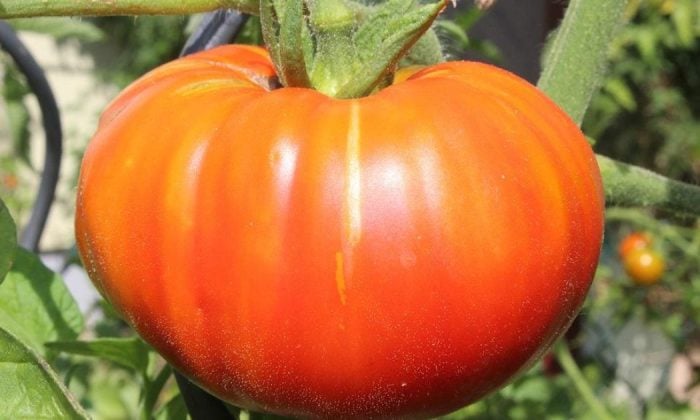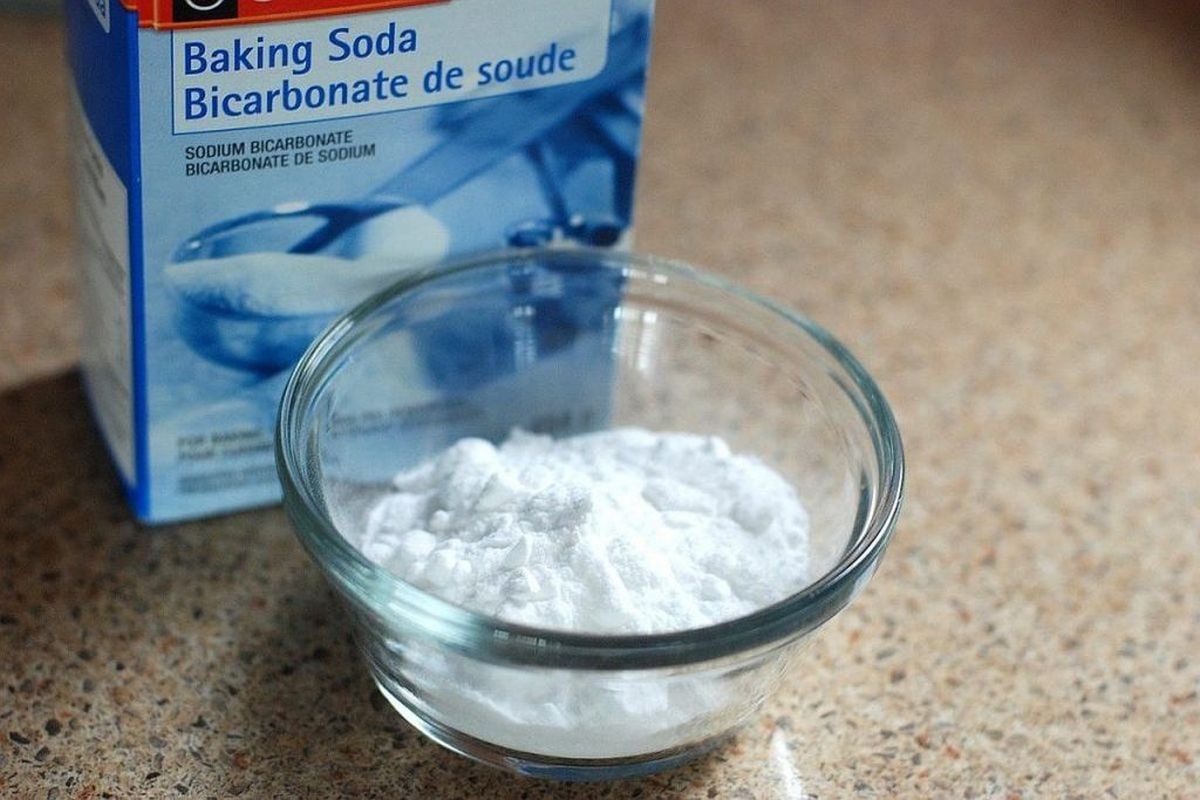Baking soda and tomatoes – myths and actual benefits

Baking soda is a great helper in tomato growing process. Some of the great properties of baking soda, like fighting mould or pests, are all well known and appreciated by housewives and DIY enthusiasts. It works great in bathrooms or kitchens as a cleaning agent but also in cooking. Baking soda provides some benefits to tomatoes, but it is not a magical cure. So, what can baking soda do and what are thte myths?
Removes mould
Yes, baking soda removes mould. Bacterial and fungal diseases are very common in tomatoes, but also in cucumbers, zucchini and eggplants. You can tell that your tomatoes have been attacked by mould if you notice brown spots on the leaves. This mould gradually destroys leaves, making fruits more susceptible to sunburn. Another type is late blight which also attacks leaves, usually the older ones. Brown spots occur on outer edges of lower older leaves. These brown spots turn purple-black as they age, and white mould appears on the underside of the leaves.
- How to use baking soda? Prepare a solution of baking soda and water. Spray on existing mould on leaves but also on other leaves that could be at risk (around the infected leaves). Baking soda prevents mould from spreading but it is not a magical cure. If the plant is heavily infected, nothing will help.
- Baking soda solution: mix three litres of water, half a teaspoon of soap, and one tablespoon of baking soda. Pour into a spray bottle and apply on a cloudy day to avoid leaf burning. You can spray all leaves and stems, including under leaves.
Photo: Pixabay
Kills pests
True. Baking soda can eliminate pests such as aphids, slugs, and snails. But be careful – baking soda is toxic to tomatoes in large quantities, so it could kill your plant too. So, how should you do it?
- Sprinkle baking soda around the base of the plant.
- Prepare a solution of baking soda and water (see above) and spray tomatoes plants.
- Add baking soda to existing slug and snail traps.
Better tasting tomatoes
Some people claim that baking soda will make tomatoes sweeter. Unfortunately, this is not true. While there is some scientific basis for this claim (baking soda is alkaline and adding it to the soil will reduce the acidity of the soil, which should produce less acidic tomatoes), baking soda does not make tomatoes sweeter. Soil acidity does not affect the taste and to get a different soil pH, you would have to add a lot of baking soda to the soil but that would be toxic.
Better tomato flowering
The claim that tomatoes will bloom better and more abundantly after adding baking soda is not true either. This claim is based on the fact that baking soda contains sodium, which helps plants bloom. but deficiency of sodium in soil is very rare. If you add sodium when you should not, you will create micronutrient imbalance that will do more harm than good.
Fighting powdery mildew
Powdery mildew is one of the most feared fungal diseases. If baking soda can deal with mould, can it also deal with powdery mildew? Yes, it can! You can recognize powdery mildew if you notice leaves and stems covered with a whitish-gray substance. This coating can also spread to flowers. It prevents plants from receiving sunlight and therefore, photosynthesis cannot occur as it should
- Use a solution of baking soda and water.
Source:
https://www.zahradkari.cz/us/sumperk/index.php?str=348
https://www.tomatobible.com/baking-soda-tomato-plants
Preview photo: Pixabay

Gardening is my hobby, I have a lot of experience and I am happy to share it.









0 comments